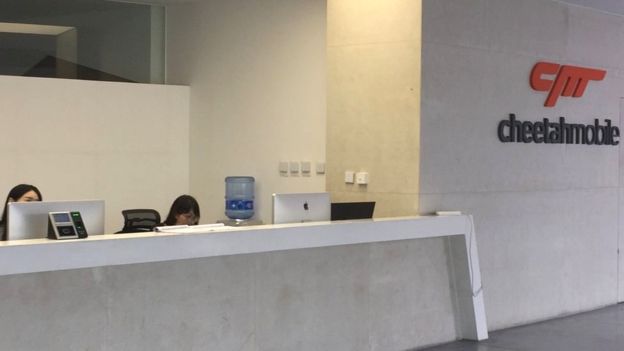导读:在过去的三十年里,中国一直是世界工厂。在制造业领域的增长使得中国成为了全球第二大经济体。

But now this growth model is stagnating, and China knows it needs to change to keep its economy growing.
但是,现在这种增长模式已经停滞不前了,而中国知道必须要做出改变,以求能够保持经济发展。
China has always been a country that copies its way to success, not a place where creativity thrives. So are China’s plans to turn into an innovation superpower realistic?
中国历来惯于复制别人的道路来取得成功,并不是一个创新特别繁荣的国家。那么,中国希望转变成为一个创新超级大国的计划现实吗?
The answer may lie in China’s tech capital, Shenzhen. It’s a city that was built on the back of achieving the Chinese dream.
这个答案也许能够在中国的科技之都--深圳--找到,这是一个建设在实现中国梦基础之上的城市。
And at a busy traffic junction in the city, you can see a tribute to the man who started the Chinese miracle: Deng Xiaoping, who is credited with the economic success of modern China.
在深圳一个繁忙的交通路口,你能够看见一座雕像,这是为了致敬那个开始“中国奇迹”的人:邓小平,现代中国的经济奇迹都要归功于他。
In the 1980s, he began experimenting with special economic zones as a way to create economic growth, and Shenzhen was the first place he tested this theory out. Dozens more were created across the mainland, all to emulate Shenzhen’s success.
在20世纪80年代,邓小平开始尝试设立经济特区,以求创造经济增长,而深圳成为了他实试验这一理论的第一个地方。后来在大陆又设立了几十个地区,它们都效仿了深圳的成功经验。
Manufacturing firms cropped up all over Shenzhen, producing goods for customers all over the world. Consumerism became king in communist China - on the government’s orders.
制造业企业在深圳遍地开花,为全世界的客户生产商品。在中国政府的命令下,消费主义在共产主义中国成为了最重要的东西。
And in the frenzied pursuit of profits, it didn’t matter whether what was produced was shoddy or a knock-off.
在疯狂追求利润的过程中,无论制造出的是劣质品还是仿冒品都没有关系。
There’s no shortage of funding for a good idea here. But can top-down innovation work?
在这里,一个好点子从来不缺资金的支持。但是组织管理严密的创新能行吗?
I travelled to Beijing to find out, and there I got a chance to see one of China’s newest companies emerging on the global innovation stage: Cheetah Mobile.
我来到北京,希望能够找到这个问题的答案。在这里我有机会参观一家中国最新的公司:猎豹移动公司(原名金山网络),该公司在全球创新舞台上混得风生水起。
Cheetah used to make mobile security software and created a 650-million-strong community of users. That’s just behind Facebook and Tencent. But Cheetah’s boss, Fu Sheng, didn’t want to stop there. He had bigger dreams.
猎豹移动曾经开发了一款手机安全软件,用户群的数量超过了6亿5千万,仅仅略逊于Facebook和腾讯。但是猎豹的老板傅盛不想止步于此,他有更大的野心。
"Chinese mobile internet products are actually pretty good," he told me as we walked around his Silicon Valley style office. "So I was convinced that my idea was sound. But every time I brought it up to my colleagues the response was, ’OK, good.’ And then went back to their own work."
傅盛的办公室有一种硅谷的风格,在我们参观的时候,他告诉我说:“中国的移动互联网产品实际上是非常好的。所以我很确信我的想法是明智的。但是当我每次和同事们提及我的想法时,他们的回答都是‘对,很好’,然后就忙他们自己的事去了。”
Mr Fu pauses for effect and smiles. "Until one day, I brought them all to the US for a meeting. That night, we stayed in a very cheap hotel and bought some wine.
傅盛停顿了一下,微笑着说道:“直到有一天,我把同事们都带去美国去参加了一个会议。那天晚上我们住在一间廉价旅馆里,买了些酒。”
"After a few glasses, I said to them, ’Let’s not just target the Chinese market. Let’s go for the overseas market - especially the US.’ They must have all been drunk, because they all agreed. And so we embarked on this path to go global."
“酒过三巡之后,我对他们说‘我们的目光不要仅仅局限于中国市场,我们要走出去发展海外市场--尤其是美国。’他们当时一定都喝醉了,因为他们都同意了我的观点。所以我们就走上了这条面向全球的道路。”
Cheetah now makes mobile games and applications. Some 60% of its revenues now come from its overseas markets. Cheetah is also developing a live broadcasting tool called Live.me to take on the likes of Periscope and Facebook Live. Mr Fu says Chinese firms must aim higher and compete with US firms.
猎豹移动现在的业务是开发手机游戏和应用软件。公司60%的利润来自于海外市场。猎豹目前正在开发一款名为“live.me”的直播工具,有点类似于Periscope和Facebook Live. 傅盛表示,中国企业必须把目标放得更长远一点,并且和美国企业相竞争。
"American companies are leading globally without working as hard as us," Mr Fu told me. "It’s not because they have the leading technologies, it is because of the way they think.
傅盛告诉我说:“美国企业不像我们这样拼命工作就能够成为全球领先者,其原因不是因为他们拥有领先的科技,而是因为他们思考的方式。”
"Chinese companies value knowledge and hard work, American companies value direction and vision. That was when I realised we needed a bigger goal: to go global."
“中国企业看重知识和努力工作,而美国企业则更看重发展方向和愿景。那时我就意识到我们需要一个更大的目标:迈向全球。”







